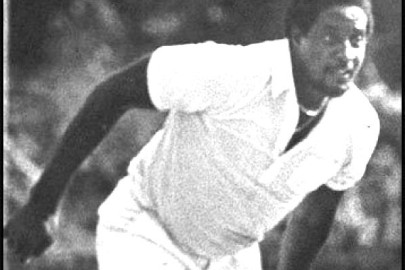In a special mini-series which we’re calling ‘The Football Fan Delusion’, sports psychologist and blogger James Hamilton challenges some of soccer’s most popular assumptions. This week he tackles the English myth of Passion and Commitment…
I’m not sure when or where I first heard the phrase “passion and commitment.” Sometime after 2002, probably: most football myths are newer than you might think. This myth, the idea that players have to display the same emotional engagement as fans in order to perform at their best, took its current form during the Eriksson years – 2001-2006.
When all is said and done, Kevin Keegan won Sven Goran Eriksson the England job. Keegan had been appointed to succeed Glenn Hoddle in the hope that he could reenergize a talented but disillusioned set of players. In this he’d been successful: nevertheless his resignation followed his brave and public admission that motivation was not enough. Neither he nor any other available English manager in 2001 was up to the tactical demands of international football. A foreign coach had to step in before World Cup qualification slipped away entirely.
Eighteen months later, England were home from the World Cup. Under Eriksson, they’d beaten Germany in Germany for the first time, taken sweet revenge over Argentina and – with an injury-wracked team and squad – led Brazil in a tournament Finals, something no other England side had ever managed.
After the Brazil game, however, Gareth Southgate made a comment about Eriksson that he, since becoming a manager himself, may have come to regret. England, he said, had needed Churchill in the dressing room against Brazil. Instead, opined this decent, mild-mannered man, “we got Iain Duncan Smith.”
In some minds, and we have to include Southgate there I think, it doesn’t matter that England doesn’t produce the kind of properly skilled, thinking players that Brazil, Spain or Italy would consider footballers. Because, the myth declares, there is something peculiar about the English. And that peculiarity is that they can be whipped up to such a pitch of feeling that they can overcome the other team’s greater skills, more intelligent tactics and ability to think for themselves. In the end, the English say, it’s the team that wants it more: it’s the team that feels like the fans..
By 2006, this delusion had gathered pace and xenophobia in equal measure. The English could – must! be whipped up to a winning frenzy. And this, it was alleged, could only be done by an Englishman… for who but an Englishman could truly understand the passion of the English?
You might see all this as an enormous, unconscious diversionary tactic. It’s not generally known that, for all the talk of “the national game”, the English have no properly implemented programme to develop young players. They never have had. Not before the War, although the Brazilians were well underway by then, with full government support. Not in the fifties and sixties, and not now.
Where a proper training programme for our young should be, sit ideas about passion, and myths about how other countries develop their players. Young Brazilian players are not favela dwellers plucked from the beach with music in their feet, and never were. It just suits us to think so.












But I thought you won the war by shaking your fists stoically at whatever Jerry threw your way and doing clever things with old bicycle parts and bits of twine.
With one or two notable exceptions your observations about English skill levels are spot on James, the first highly skilled player I saw was Hungarian, Ferenc Puskas, the Hungarian goal scoring machine. The lack of intelligent training is not confined to footie, it pervades much UK sport. As for passion, in the case of the Scots it works when it is racially motivated, the frequently rubbish Scots teams often manage success against the English, especially when led by a red headed bloke with that look of steely hatred in his eyes, visions of claymores and Gibsons.
your last lines about brazilians and favelas is exactly the same as how we pigeonhole the germans – a team that we insist on referring to as ‘cold’ and ‘clinical’ and ‘robotic’ when they beat us with similar players and tactics to our own – and interestingly the germans are terrified of appearing too patriotic and ‘passionate’ lest they be tarred as nationalistic nazis.
Gianluca Vialla and Gabriel Marcotti wrote a book about the differences between English and Italian football, the central thesis of which was that the English players see football as a game, whereas the Italians see it as a job.
So the English don’t take it less seriously, rather they lack the cold professionalism which might be a defence against the absurd pressure and expectation put on them to represent their nation and do so with ‘passion and commitment’. The 2010 World Cup team was crippled by self-consciousness, esp the one bearing the most expectation, Rooney, who was beyond awful. They couldn’t even do a basic, professional job.
Just to counter-balance this though, there are moments in sport where bursts of inspiration swing things. I’m thinking Liverpool’s comeback from 3-0 down in the 2005 Champs League final, led by Gerrard in a 20 minute passage of what Simon Barnes described as ‘surfing a monster wave of adrenalin’. Is that not ‘passion’?
We should be grateful. Imagine not being able to laugh at these raging muppets every couple of years. Not to mention the unintentionally hilarious cheerleaders in the media.